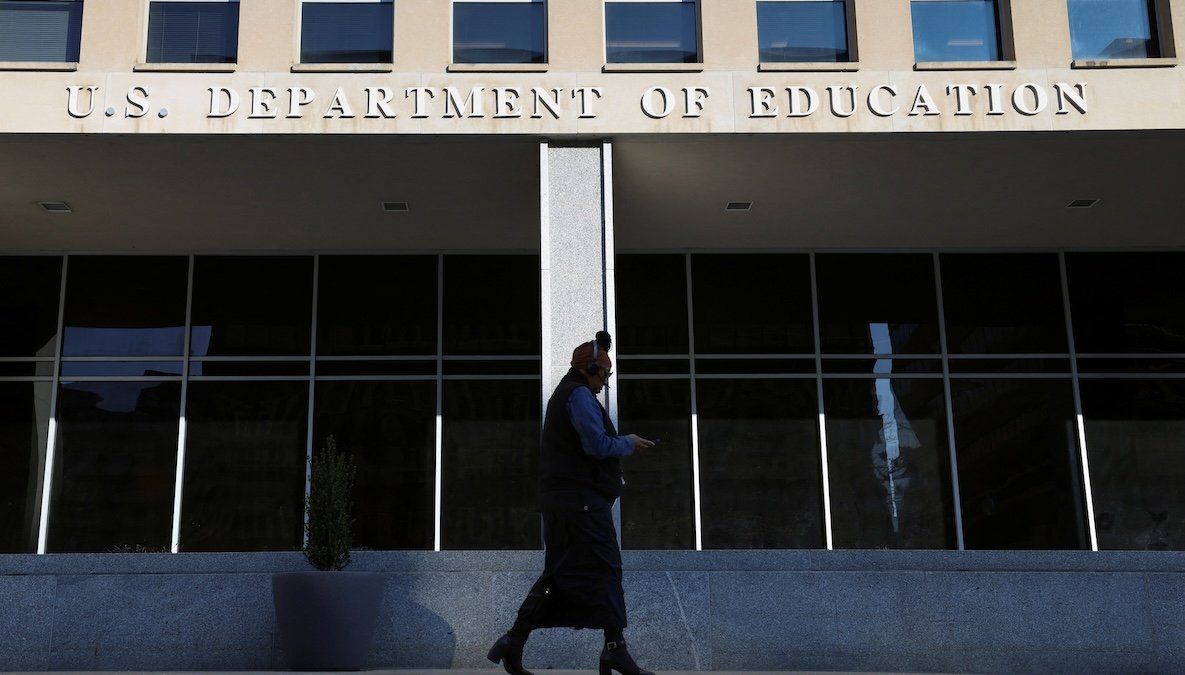GZERO Explains: How did the US Department of Education become so controversial?
A person walks in front of the Department of Education building in Washington, DC, on Feb. 4, 2025.
When was it established and why? US President Jimmy Carter created the department in 1979 as a Cabinet-level agency. It consolidated educational functions that were previously the responsibility of the Department of Health, Education, and Welfare (now the Department of Health and Human Services).
The department had a broad mandate, overseeing elementary, secondary, and postsecondary education, vocational training, special education, and civil rights compliance. Carter wanted to centralize programs and ensure equal access to education, which he considered “a fundamental right.”
Why was this significant? Historically, education in the United States has been primarily a state and local responsibility. The US Constitution does not explicitly mention education, and the 10th Amendment reserves powers not delegated to the federal government to the states.
At the same time, however, the 14th Amendment mandates equal protection under the law. In 1954, the case of Brown v. Board of Education gave the 14th Amendment precedence, upholding federal intervention in cases of legal discrimination, such as bussing to combat school segregation.
Eleven years later, as part of President Lyndon Johnson’s War on Poverty, Congress passed the Elementary and Secondary Education Act. It does not mandate direct federal oversight of schools but offers states funding based on meeting federal requirements, including safeguarding civil rights. These funds were later administered by the Department of Education.
How have Republicans viewed federal involvement in education? In the 1980s, President Ronald Reagan wanted to abolish the department, citing concerns about federal overreach. George Bush Sr. took a more activist approach, styling himself as the“Education President,” and leveraging the department’s powers to improve education quality.
What is Trump’s position? President Donald Trump has criticized the department for imposing a race and gender agenda on schools that encourages children to “hate” their country. He has said the federal government should not have control over schools and that it’s staffed with “people that hate our children.”
On Feb. 14, Acting Assistant Secretary for Civil Rights in the Department of Education Craig Trainor issueda directive that all schools receiving federal funding rescind their Diversity, Equity, and Inclusion policies within two weeks or “face a loss of funding.” Trump has also nominated Linda McMahon, cofounder of World Wrestling Entertainment and former head of the Small Business Administration, as Secretary of Education. At her confirmation hearing last week, McMahonstated that her first assignment as Secretary would be to “put herself out of a job” by dismantling the department, shifting control of education to the states and curbing federal oversight.
McMahon also proposed reallocating programs from Education to other federal agencies, such as moving the enforcement of the Individuals with Disabilities Education Act to the Department of Health and Human Services and transferring the Office for Civil Rights to the Justice Department.
How can these changes be made? All these changes would require congressional approval. At her confirmation hearing, McMahonsaid “President Trump understands that we will be working with Congress …We’d like to do this right. We’d like to make sure that we are presenting a plan that I think our senators could get on board with, and our Congress to get on board with.”